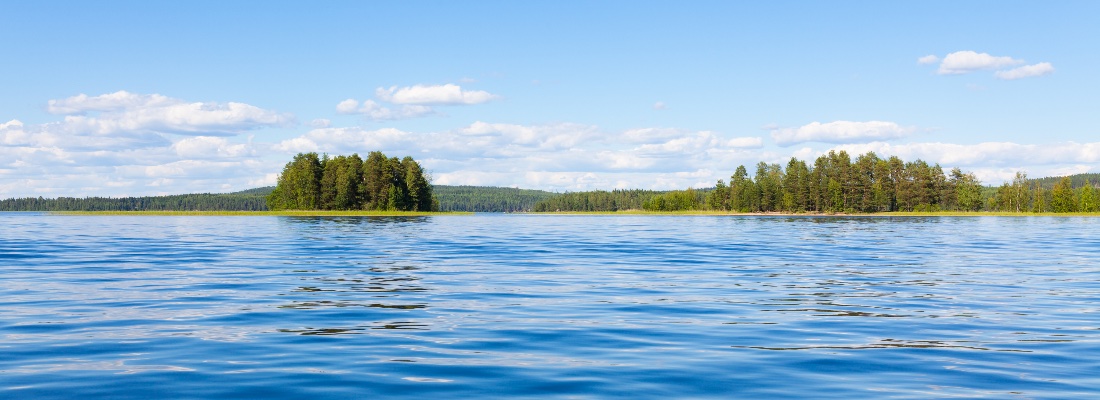Course Overview
Webinar Overview
Abstract
Recent news of water polluting industrial practices (i.e. untreated sewage discharges) and public data show that the quality of water (including drinking water) deteriorates rapidly. This threatens both public health and the overall ecological stability of our ecosystem – the health of our communities and the existence of many animal species is at stake. IoT (Internet of Things) and AI show promises for scalable and real-time water pollution monitoring and forecasting allowing researchers and organisations to act quickly to prevent water-related ecological or public health disasters.
During this open-to-public webinar, we will discuss recent innovations in this field including research or governmental projects utilising modern AI methods which have been applied to monitor and predict the quality of water in various parts of the world.

The webinar will be run and moderated by Simon Walkowiak – director at Mind Project Limited and a Ph.D. researcher in Artificial Intelligence at the Bartlett Centre for Advanced Spatial Analysis (University College London) and the Alan Turing Institute in London.
Resources and further reading
This section lists selected online resources and references to further reading which are relevant to the topic of this webinar:
- (Policy paper) “Plan for Water: our integrated plan for delivering clean and plentiful water.” – a policy paper by the Department for Environment, Food and Rural Affairs, published on 4th of April 2023.
- “AI to stop water pollution before it happens.” – a general news article by BBC, published on 16th of June 2023.
- “AI to help reduce flooding and river pollution across Yorkshire.” – a blog article by the University of Sheffield, published on 23rd of December 2021.
- “Researchers develop data-driven framework for forecasting bacteria levels in beach water” – a blog article by European Commission, published on 12th of April 2023.
- (Academic article, Open Access) Towards Synoptic Water Monitoring Systems: A Review of AI Methods for Automating Water Body Detection and Water Quality Monitoring Using Remote Sensing. – Yang, L., Driscol, J., Sarigai, S., Wu, Q., Lippitt, C. D., & Morgan, M. (2022). Towards Synoptic Water Monitoring Systems: A Review of AI Methods for Automating Water Body Detection and Water Quality Monitoring Using Remote Sensing. Sensors, 22(6), 2416.
- (Academic article, Open Access) A review of the application of machine learning in water quality evaluation. – Zhu, M. et al. (2022). A review of the application of machine learning in water quality evaluation. Eco-Environment & Health, 1(2), pp. 107-116.
- (Academic article, Open Access) Groundwater quality forecasting modelling using artificial intelligence: A review – Nordin, N. F. C. et al. (2021). Groundwater quality forecasting modelling using artificial intelligence: A review. Groundwater for Sustainable Development, 14, 100643.
- (Academic article, Open Access) Water Quality Prediction Using Artificial Intelligence Algorithms – Aldhyani, T. H. H., Al-Yaari, M., Alkahtani, H., & Maashi, M. (2020). Water Quality Prediction Using Artificial Intelligence Algorithms. Applied Bionics and Biomechanics, 2020, 6659314.
- (Academic article, Open Access) Forecasting water quality parameters using artificial neural network for irrigation purposes – Ubah, J. I. et al. (2021). Forecasting water quality parameters using artificial neural network for irrigation purposes. Nature Scientific Reports, 11, 24438.
- (Academic article, Open Access) Modeling of groundwater quality index by using artificial intelligence algorithms in northern Khartoum State, Sudan – Mohammed, M. A. A., Khleel, N. A. A., Szabó, N. P., & Szűcs, P. (2023). Modeling of groundwater quality index by using artificial intelligence algorithms in northern Khartoum State, Sudan. Modeling Earth Systems and Environment, 9, pp. 2501–2516.
Who is this webinar for?
This webinar is a short 1-hour online event which is recommended to those who are interested in learning about smart innovations utilising modern machine learning and AI methods in the field of water quality monitoring and pollution forecasting. This event will be of interest to general public, individuals and organisations interested in environmental protection or water/air quality monitoring, as well as students and researchers active in developing ML or AI methods for environmental studies. During the webinar, we will also address the role of IoT (Internet of Things), smart sensors and Big Data in projects implementing remote monitoring of water quality/pollution – therefore, those who are interested in how these technologies work together to protect and improve the quality of water are also invited to attend this event.
Webinar delivery
This event is part of the “AI-Friendly” series of live webinars open to the general public and organised by Mind Project Ltd. The webinar is completely free-of-charge to attend, however the prior registration is required. Once registered for the event, you will receive an email with Joining Instructions. You can register more than 1 person on this webinar – each registered attendee will receive a separate email explaining how to join the event. Our open-to-public webinars are run via the Microsoft Teams application.
The webinar will run for approximately 1 hour. It will be run live and moderated by Mind Project employees, however other external guests might be invited to take part in a panel session or as interviewees. As an attendee, you may ask questions, discuss the topic and interact with other participants of this webinar. You can also message us during and after the webinar by using the Chat functionality within Microsoft Teams application.
This webinar will be recorded, but access to the recording will be restricted to registered attendees only. As the webinar will be recorded, you will enter the meeting with your camera and microphone switched off to protect your privacy, however feel free to unmute yourself and turn the camera on when you ask questions or participate in the discussion.
Webinar date: Monday, 11th of December 2023, 15:30 – 16:30 (London, UK time)
Deadline for registrations: Monday, 11th of December 2023, 15:00 (London, UK time)
Course Overview




